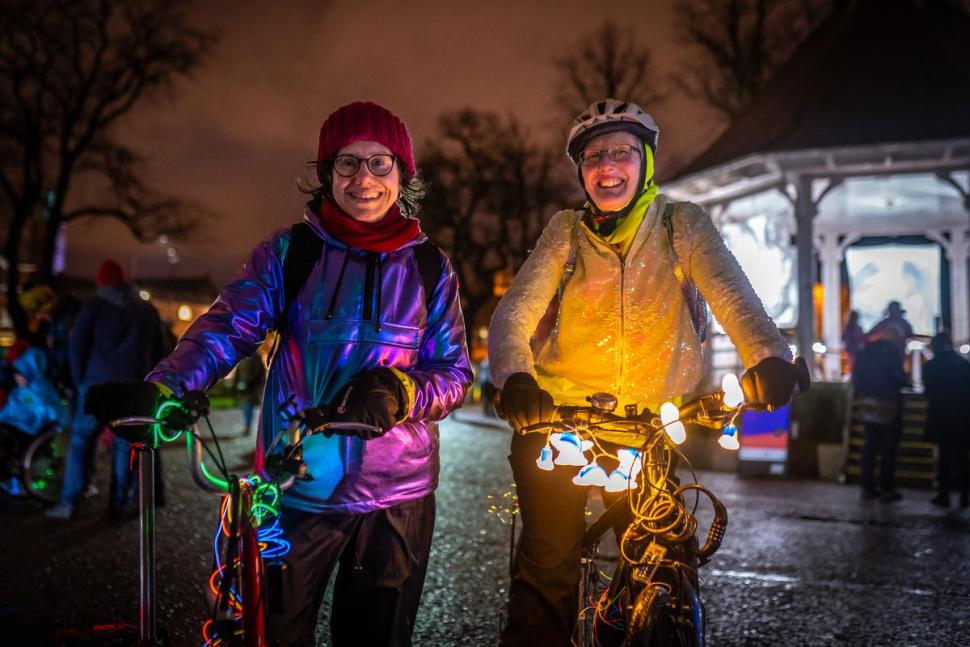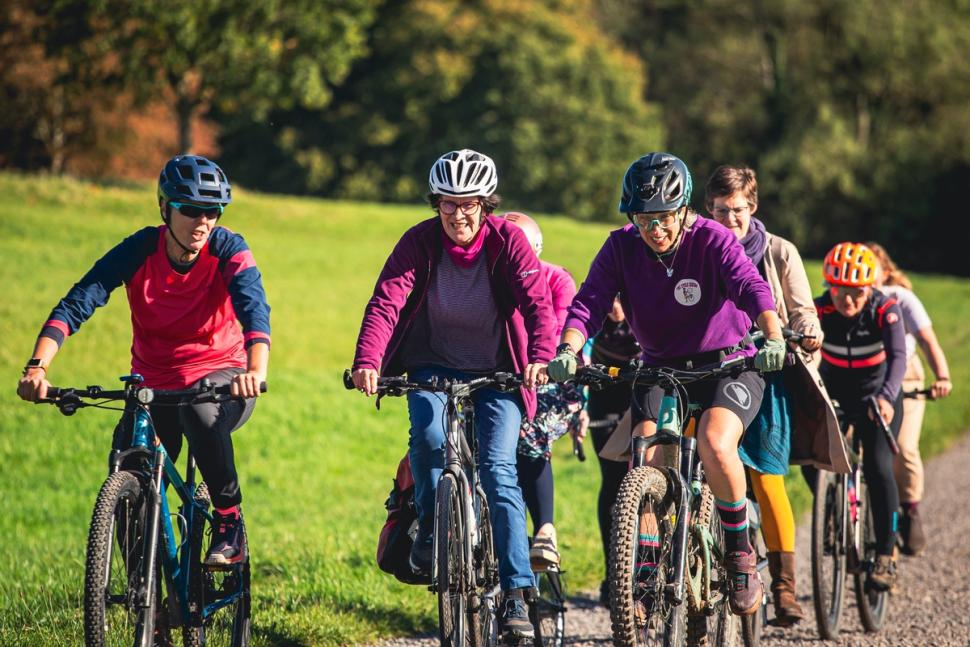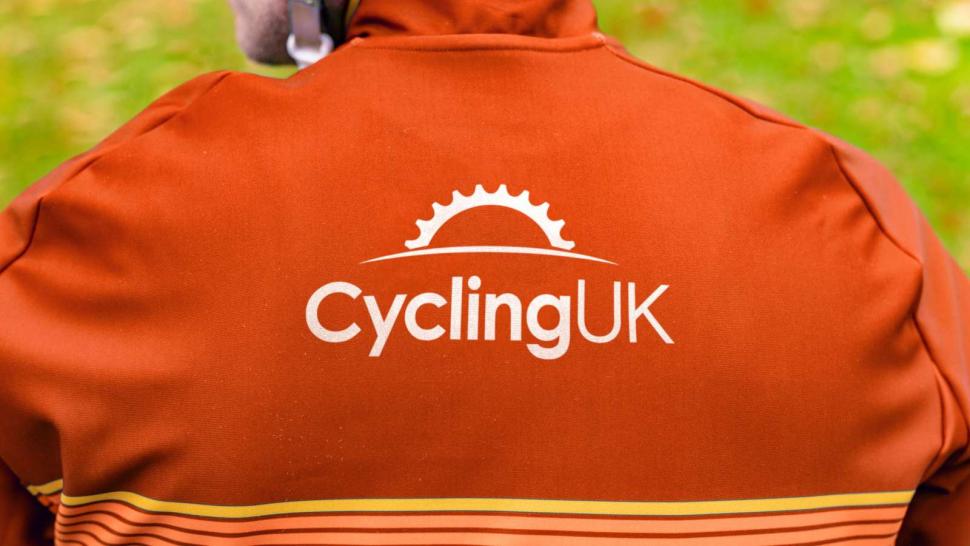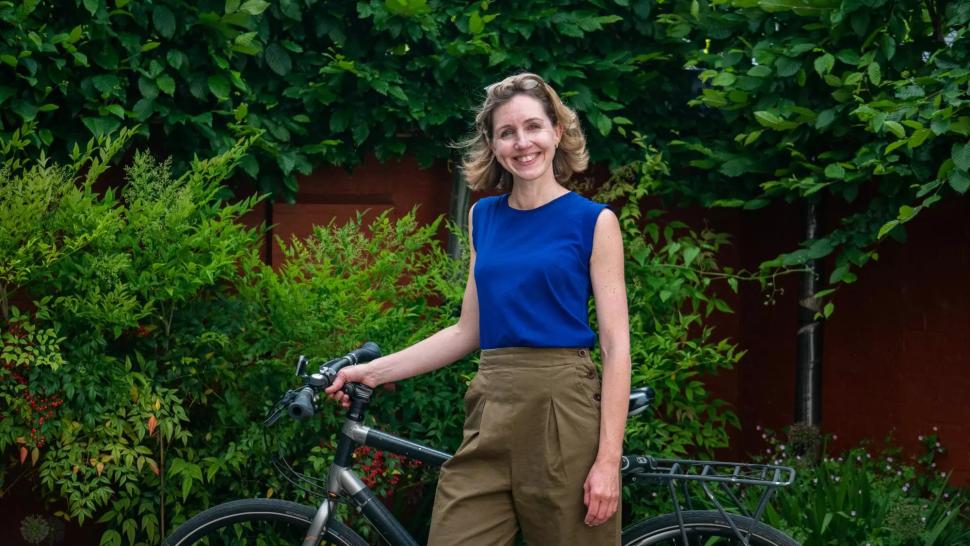At least four people have turned down their nomination for Cycling UK’s annual 100 Women in Cycling award following the charity’s decision to exclude transwomen and non-binary people from consideration, citing a Supreme Court ruling.
The ruling, delivered earlier this year, found that the word ‘sex’, as defined in the Equality Act of 2010, referred to biological sex rather than “certificated sex” and that trans people were protected from discrimination on the basis of gender reassignment rather than their sex.
And now, the far-reaching implications of the Supreme Court’s decision in April have been felt within Cycling UK’s 100 Women in Cycling, the active travel charity’s annual awards list which recognises and celebrates the contributions of women, from all backgrounds and abilities, who promote and encourage cycling.
 Cycling UK glow rides (credit: Cycling UK)
Cycling UK glow rides (credit: Cycling UK)
Cycling UK says that women from “all walks of life and every corner of the cycling world” make up the list, “from mountain bikers and endurance cyclists to community group leaders, cycling school-run mums, and industry entrepreneurs.”
However, the charity has confirmed that, following the Supreme Court’s decision, this year’s edition will feature only biological women, after Cycling UK “received legal advice that very clearly says that for our awards to comply with the law” transgender or non-binary cyclists could not be included in the 2025 list.
Cycling UK’s decision to exclude transwomen from its 100 Women in Cycling list has attracted criticism from the charity’s own nominees, with several cyclists publicly declining their awards in recent days, including Megan Joy Barclay, the head of Women’s Development at Herne Hill velodrome.
“I hate the majority of policies in place but also don’t have the expertise or influence to implement the racing world I’d like to see,” Barclay said in an open letter on Instagram criticising the charity’s stance last week.
“But I always saw these awards as a celebration of grassroots and community power in the face of gender marginalisation – hateful laws have no place here.
“I hope you will reconsider how these awards are run next year to ensure all women and non-binary people are included as we work towards better representation in cycling.”
 100 Women in Cycling (Cycling UK) (credit: road.cc)
100 Women in Cycling (Cycling UK) (credit: road.cc)
Today, two more nominees have also announced they’re declining the award in separate posts on LinkedIn.
Athlyn Cathcart, founder of the Bristol-based mentorship program Roll Models, wrote: “I am deeply saddened that the 100 Women in Cycling Award has taken such a stance. Supreme Court ruling aside, it is Cycling UK’s choice to include or exclude. Bikes are machines for freedom, and no one should be shut out.”
A few hours later Claire Sharpe, founder of All Terre Adventures, said: “Cycling is about freedom, connection, and belonging. Exclusion doesn’t belong in that story and it’s not what All Terre Adventures is about.”
In a video uploaded as part of her LinkedIn post, she added: “If they don’t wanna ride with all women, it’s not the kind of ride I wanna be on anyway.”
Meanwhile, Green Party councillor Saskia Heijltjes also posted on Bluesky that she had asked to remove her name from the awards list.
The Supreme Court ruling in question refers to a decision made in April earlier this year, after a gender-critical campaign group brought a legal case challenging Scottish Government guidance relating to gender recognition. The case hinged on the interpretation of the words ‘man’ and ‘woman’ in the Equality Act of 2010, and the consideration of transmen and transwomen in relation to that definition.
In his ruling, Lord Hodge wrote that the judgement was made on a technical point of legal understanding and was not “a triumph of one or more groups in our society at the expense of another.” The ruling was welcomed by both the Prime Minister and Leader of the Opposition.
The court did not adjudicate on whether transwomen are considered women in non-biological contexts (for example in a recreational cycling club), or consider the status of intersex people who, according to a UN definition, are born with biological characteristics that do not match “typical binary notions of male or female bodies”.
Despite this, following the Supreme Court’s ruling, interim guidance was issued by the Equality and Human Rights Commission recommending that schools, workplaces, and sporting bodies ban trans men and women from single-sex facilities matching their gender. The guidance also recommended that transmen and transwomen should be barred from gay men’s spaces and lesbian spaces respectively.
Prior to the Supreme Court decision, British Cycling announced the creation of an ‘Open category’ of its elite racing that would consolidate the men’s category whilst retaining a separate women’s classification that excludes transgender and non-binary competitors.
 Cycling UK Jersey logo (credit: Cycling UK)
Cycling UK Jersey logo (credit: Cycling UK)
In a statement following this week’s backlash, Cycling UK defending the decision, saying that they had “received legal advice that very clearly says that for our awards to comply with the law we can only feature biological women.
“However, we’re very keen to stress that Cycling UK is absolutely dedicated to bringing the joy of cycling to everyone.”
 Cycling UK Chief Executive Sarah Mitchell (credit: Cycling UK (Robert Spanring))
Cycling UK Chief Executive Sarah Mitchell (credit: Cycling UK (Robert Spanring))
The charity’s Chief Executive Sarah Mitchell added: “This update to the rules doesn’t alter our strong commitment to supporting all those who cycle, including transgender and non-binary people.
“We truly believe cycling is for all, and we’ll keep working towards that goal.”
Cycling UK are one of the oldest cycling charities in the world and trace their roots back to 1878. They have run the 100 Women in Cycling competition every year since 2017. Last year’s nominees included former world champion Emma Pooley, Bikeability Trust Chief Executive Emily Cherry and Rouleur magazine writer Rachel Jary. This year’s nominees are expected to be publicly announced later this month.
